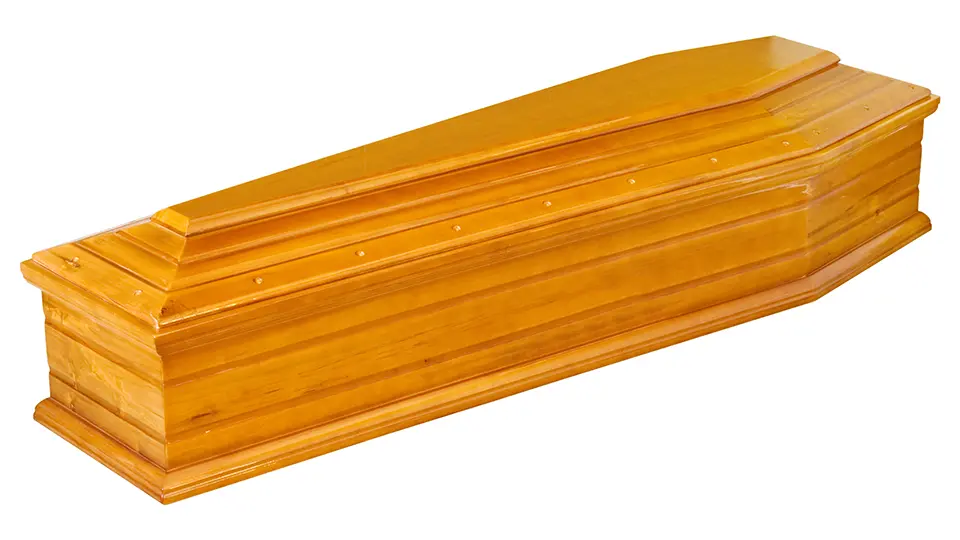Across the United Kingdom, families are battling the aftermath of a cost of living crisis that has inflated the prices of everyday needs such as food, combustibles, and consumption items. Sadly,average funeral costs in the UK have in the main risen. This distress has added extra financial pressure for households mourning the loss of a loved one as funeral expenses continue to drive up. “How much does a funeral cost” is a commonly searched question. This post will cover the average funeral costs in the UK and give a detailed guide on effectively saving on burial and cremation expenses while handling the cost of living crisis.
Key takeaways
- The UK cost of living problem has made paying for a funeral even harder for many.
- Funeral directors fees are still the largest part of the charges, unless having a direct cremation.
- There is both government and charity help available.
- Remember it’s the thought behind the funeral that is important, not the amount that is spent.
Table of contents
The average funeral costs in the UK
Understanding the baseline for the average funeral costs in the UK is essential when navigating through the complexities of arranging a send-off for a loved one. In 2025, research conducted by SunLife Cost of Dying report 2025 revealed that the average cost of a funeral in the UK stood at £4,285. This amount comprises various components, making exploring options for potential savings crucial.
The average funeral costs in the UK differ depending on the location, kind of service, etc. Below is a glimpse into this variation. Figures from SunLife Cost of Dying report 2025.
- Burial Funeral Costs: The average cost for burial in the UK is around £5,198. However, it can escalate significantly, reaching up to £5,449 in certain regions like London.
- Cremation Costs: Average cremation funeral costs, including fees for the crematorium, doctors, and ministers, amount to £3,980. Yet, a direct cremation which forgoes a formal ceremony averages around £1,597.
- Funeral Directors’ Charges: Engaging a funeral director normally means that their fees will be around 50%-60% of the total invoice.
Government and charity help
Research clearly demonstrates an upward trend in funeral costs over the years. Comparing the average overall dying cost of £9,797 in 2024 has increased from £9,200 in 2022 . These escalating prices highlight the financial pressure on households during an already challenging period.
Furthermore, taking advantage of available support to try and lower the costs of the average funeral cost in the uk is crucial to navigating the broader cost of living crisis, including for those families mourning the loss of a loved one. For instance, the Government’s cost of living payment aims to assist households in managing financial challenges during these trying times. Eligibility criteria are based on receiving benefits or tax credits such as Income Support, Pension Credit, Universal Credit, and more.
More information on a range of different financial funeral help from the Government and charities can be found by visiting the link.
Strategies to save on funeral costs
During the cost of living crisis, exploring strategies that can help mitigate average funeral costs in the UK while maintaining the occasion’s importance is essential. Listed below are some indispensable practical steps to consider.
Step 1: Low-cost funerals
Average funeral costs in the UK are more acheiveable when considering affordable options like direct cremation or natural burial for cost-effective alternatives to traditional burials. Direct cremation and natural burials have fewer expenses for coffins and plots. Independent funeral directors like TDM Funeral Services, BB Funerals, and The Funeral Market offer more budget-friendly options.
In addition, low-cost undertakers provide simple cremation services. These options omit ceremonial elements and offer flexibility for mourners. Besides that, undertakers offer services that include collection, cremation fees, and transportation.
In general, by opting for low-cost options, you can save around 50%† compared to traditional funerals. Plan beforehand with prepaid funeral plans to secure affordable services while ensuring a respectful farewell.
Step 2: Funeral service
Another practical strategy to help you save on funeral costs in the UK is to engage a spokesperson or religious figure directly rather than through the undertaker. This approach can significantly reduce costs. Religious funeral services can be arranged by contacting your church or place of worship.
In addition, customisation is pivotal when it comes to service orders. Eulogy components typically include introductions, hymns, readings, and closing rituals, personalised to the deceased, and sometimes based on cultural or religious preferences.
Step 3: Coffin prices

Considering coffin prices can be a significant factor when planning a funeral and aiming to save on funeral costs during the ongoing cost of living crisis. Coffin charges in the UK differ significantly based on the type of coffin selected. Opting for basic and affordable coffins can help minimise expenses without compromising quality.
One increasingly popular and budget-friendly choice is the cardboard coffin. Cardboard coffins are a growing trend in the UK, driven by affordability, eco-friendliness, and personalisation possibilities. In your search for affordable coffin options, consider online retailers that offer competitive prices. Buying online can offer substantial savings compared to purchasing from traditional funeral directors.
Furthermore, exploring other material options like bamboo, wicker, and wool can provide environmentally friendly choices suitable for cremation or burial. These alternatives offer a departure from traditional coffin materials and can be cost-effective and biodegradable.
Step 4: Funeral wake ideas
In today’s challenging times of rising living costs, planning a cost-effective funeral wake requires careful consideration. Implementing budget-friendly ideas to assist average funeral costs in the UK can help create a meaningful event that honours your loved one’s memory while navigating financial constraints.
When hosting the wake, you have several options. Directly booking a venue offers cost efficiency compared to undertakers or agencies. Alternatively, hosting the wake at home or in a local pub can reduce expenses while providing a personal touch or relaxed atmosphere. Consider personalised touches like visual tributes, favourite foods, and photographs of the deceased with their family and friends.
Additional ideas include outdoor picnics, balloon releases, candle lighting ceremonies, video montages, and even incorporating games like bingo. Remember, every decision reflects your commitment to honoring your loved one while considering your budget.
Step 5: Home & natural burials

Home and natural burials are environmentally friendly and save you money. These type of funeral are generally below the average funeral costs in the UK. This is due to natural burials have fewer requirements and hence lower costs. For instance, if a loved one passes away at home, you could arrange a home burial, avoiding undertaker expenses. Storing the body at home for a week may be possible, and local undertaker refrigeration might be needed for longer storage. Also, hospitals can temporarily store bodies before funerals, allowing dressing and coffin placement.
Opting for garden burials at home can be cost-effective, but follow local council regulations, as well as those from the Environment Agency. In addition, biodegradable options for coffins, blankets, and shrouds are great for eco-friendly natural burials. These choices provide both savings and a serene atmosphere, making them attractive to many.
Conclusion
While trying to save on average funeral cost in the UK during the cost of living crisis, it’s important to approach funeral planning while focusing on lower costs as you honour your loved one’s memory. Exploring low-cost funeral options allows you to create a meaningful farewell that can help your finances.
Remember, the most important aspect of a funeral is the opportunity to celebrate a well-lived life and comfort those left behind. By incorporating these steps into your funeral planning process, you can navigate the challenges of a cost-of-living crisis while paying tribute to your loved ones respectfully and affordably.
† Save around 50% based on Dignity Funerals Direct Cremation £1799 (May 2025). TDM Funeral Services Direct Cremation £899 (May 2025). This is approximately 50% difference in costs.



